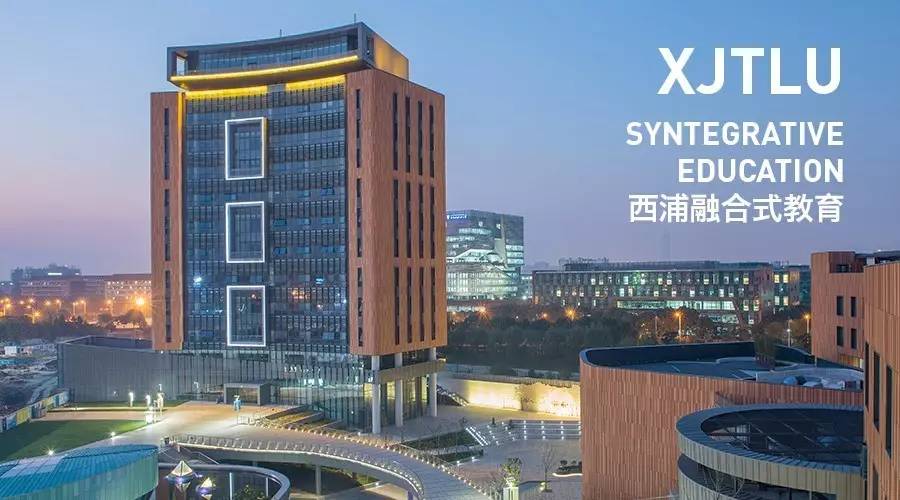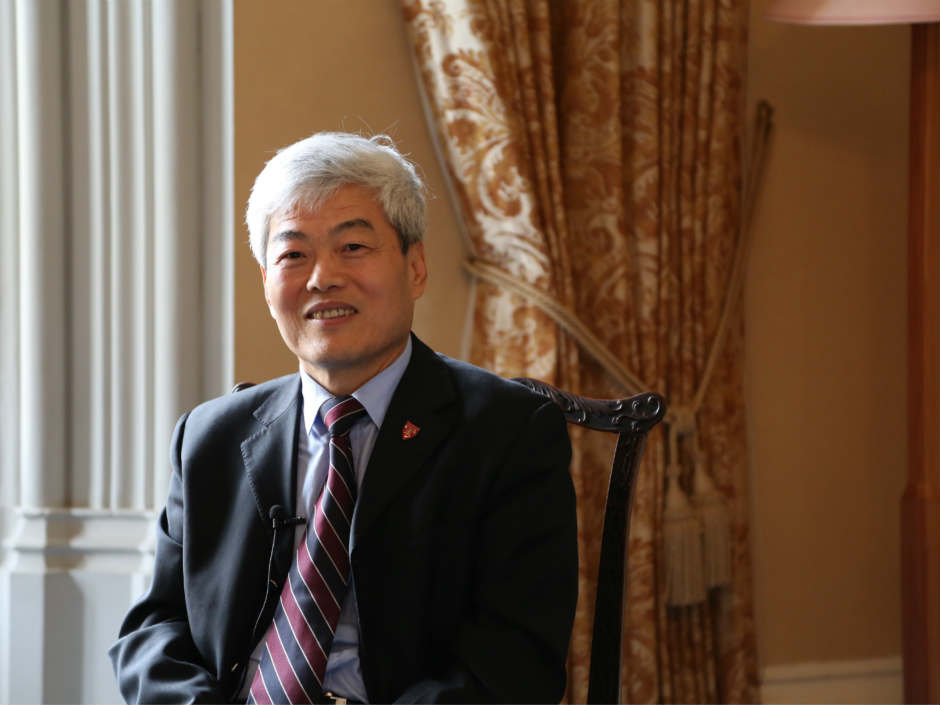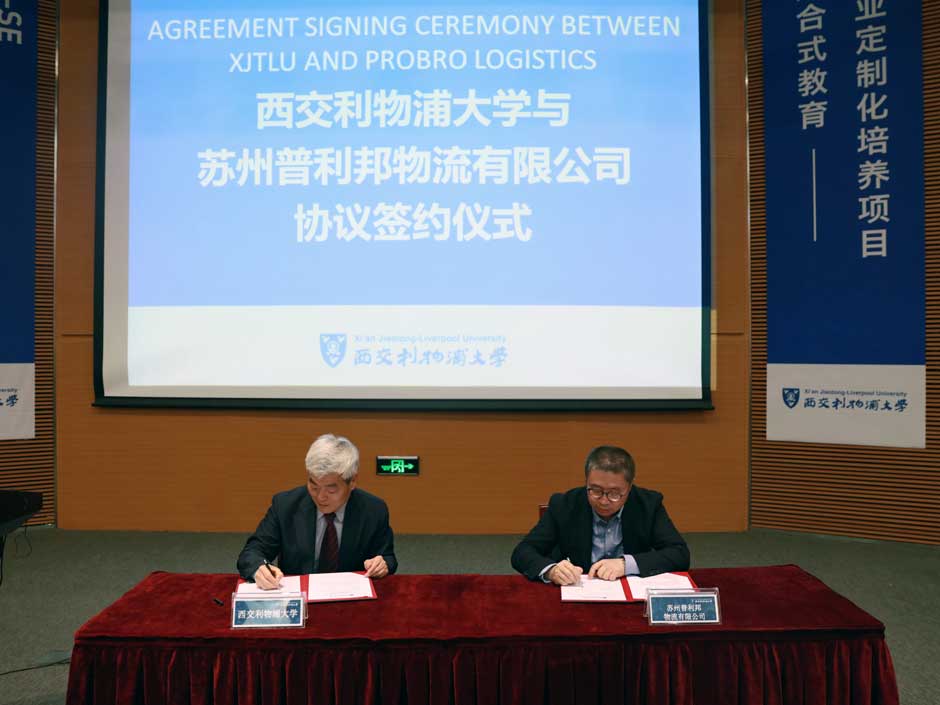29 Jun 2017
From kindergarten to university, it takes over ten years for a child to become fully mature. But a decade ago, who could have known about the rapid changes happening in today’s society and the growing demand for talent and human capacity?
Education, therefore, must be forward-looking, responding to future needs, and considering what people need to succeed: education is what prepares people for the future.

Ten years ago, when we were setting up Xi’an Jiaotong Liverpool University, we realised that conventional education was facing significant challenges. So we thought, ‘Could XJTLU leverage international collaboration to create a new University and education model to respond to society’s future needs?’
At XJTLU, we’re always reflecting on educational practices, remoulding teaching, and redefining university education. We have been striving to combine the flexibility of American higher education, the quality assurance approaches of the British system, the emphasis on fundamental studies of Chinese education, and to adopt modern international teaching techniques. This allows us to adapt to the trends in international education, respond to future demands, and cultivate global citizens. In this sense, we have been quite successful over the past decade.
Looking to the future, we are facing many global challenges. We are in the midst of an age where artificial intelligence is developing rapidly, and in the coming decade, AI and robots will replace many of the jobs humans once did. AI machines will be able to perform 70 to 80 percent of the functions humans can, and perform them better.
What should future education look like under this scenario? If we want AI to serve the needs of people whilst maintaining total control, we must find talented people who can steer this technology. In this light, we must consider whether the modern education system is capable of cultivating this kind of talent.
To answer this question, we must first understand what kind of people can control and steer AI. They must be innovative, nimble, and good at dealing with complex human relationships. They must not only have specialised training and experience, but also cross-cultural leadership skills, management skills, the ability to innovate, and to master and incorporate the new technology and lead the new industry.
The existing worldwide education models designed to train specialised elite talent, however, cannot respond to society’s future needs. For those working in the field of education this is both a challenge and an opportunity.
XJTLU is aware of this challenge. In the last 10 years, we have succeeded (at least initially) in cultivating the type of talent I have been talking about. Looking toward the future, though, we need to deepen and build on our foundation, and train more new talents who are versatile and capable of driving the development of new industries.
These are not specialised elites, but rather industry elites. ‘Industry elites’ means that they have not only specialised knowledge, but must also possess knowledge about the industry; they should be able to integrate, innovate, manage and master the new industries.
Perhaps 10 percent of people in the future will become a specialised elite or an expert in a particular field, discovering new knowledge and creating new technologies. Another 20 percent, however, can become the industry elites who use new technologies, including AI, to drive the development of new industries to create a better life and service environment for humanity.

XJTLU began developing a new model for cultivating elites one or two years ago, one that looks to cultivate future industry elites in a different way than conventional education models, and we now call it ‘Syntegrative Education’ (SE).
We know it is difficult to train a leader. However, who could doubt that leaders might emerge among the industry elites we have trained? So, the Syntegrative Education model we have been developing targets this 20 percent of people, namely: the industry elites and leaders.
So, how does Syntegrative Education work? The SE model comes in three types: the first is Industry and Enterprise Tailored Education (SE-IETE); the second is an Entrepreneur College at XJTLU that will be developed in due course (SE-EC); and the third is to cooperate with local government and enterprises to create an Innovation and Entrepreneurship Community to cater to emerging industry elites (SE-IEC).
How does Syntegrative education help students? Let’s take SE-IETE as an example. Let’s say you are a new XJTLU student, and you pick electrical and electronic engineering (EEE) as your degree programme. Later, in the 3-month-long summer between your first and second years you can take a summer school course in IETE. Here, you will work together with high-potential enterprises in a promising industry on a course designed and developed with industry insiders. In the summer school you can find out about the prospects in that industry, gain real experience, and an understanding of the knowledge and skills needed.
Following this first summer semester trial, you may choose to enrol formally in the IETE programme in the summer school of your second year. At this stage, professors from the University and industry leaders will collaborate to teach the courses, deepening your knowledge of the industry and allowing you an opportunity to intern in a real industry setting.
In Year Three, you can take a third summer school course, taking specialised classes and undertaking training and practice on-site at an enterprise. At the same time, this will help you in your pursuit of your studies in electrical and electronic engineering. In this sense, you gain both specialised training as well as industry experience.
In your Final Year, doing your graduate design project, you can have the opportunity to undertake research to tackle a real-world industry challenge rather than simply responding to a problem a teacher sets for you. You may also receive mentorship from both a teacher as well as an industry leader. If you choose a project with great potential, your career may ‘take off’ from your Final Year Project.
Then, once you’ve graduated from the University, you may have more opportunities to choose from. You may continue along the EEE route to become an engineer, or you may choose to continue your career in the enterprise you trained with, as the company will already be familiar with you, and you would also know the industry very well through these three years of training programmes. If you choose the latter and the company recognises you, you may then have a very good position.
But it doesn’t end here. We have an understanding with the companies with whom we cooperate that once you gain a job there, you can be sent back to the university to pursue a masters degree while at the company. This will be different from any existing masters programme as it will be tailored to your individual needs. This programme will come with expectations and assignments from your company and will be highly customisable, fusing theory and practice. Both you and your company will benefit greatly from this opportunity.
After graduating from your masters programme, you will have reached a high level in your career development. At this time, many of your peers from other universities will be scrambling to send out résumés. You will be the one making the decision on whether or not to hire one of them! You will also have a greater chance to become an industry elite and leader.

At present, there is no such model for systematic education anywhere else in the world. Even though some may have tried in some procedures and offer opportunities such as internships, they are often fragmented.
We aim to build on our foundation of the last decade, and strengthen this Syntegrative Education model for cultivating industry elites. If we can achieve this goal, we are confident that we will succeed in becoming a leader in cultivating future talent.
XJTLU has officially launched its SE-IETE pilot programme this year and we are expecting new students to join. I am confident that as the programme develops more parents, students, companies and our society at large will begin to understand the value of this education model. So let’s work together to push forward and innovate on this model, training more elites and leaders for our society.
(editor: Danny Abbasi)
29 Jun 2017
RELATED NEWS

Professor Youmin Xi on the benefits of internationalised education
Professor Youmin Xi, executive president of Xi’an Jiaotong-Liverpool University, delivered a speech entitled ‘A Model for Sino-Foreign Cooperative Education’...
Learn more

XJTLU explores new Syntegrative Education model
An announcement conference and agreements signing for a tailored education project was held at Xi’an Jiaotong-Liverpool University.Industry and Enterprise Ta...
Learn more








